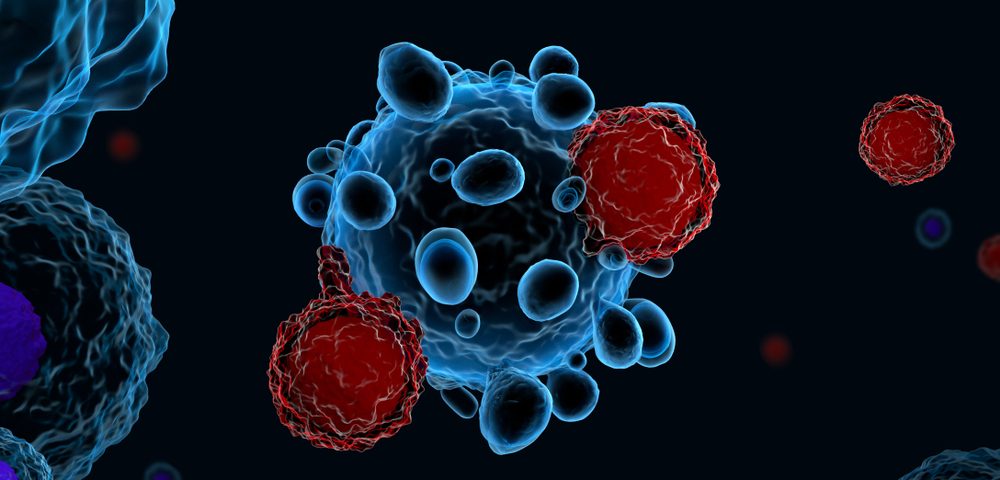Patients with an aggressive kind of skin cancer called Merkel cell carcinoma appear to have better responses and live longer when given the PD-1 inhibitor Keytruda (pembrolizumab), compared to previous patients given first-line chemotherapy, a Phase 2 clinical trial shows.
The findings support Keytruda’s recent accelerated approval for advanced Merkel cell carcinoma patients, granted in December.
The study, “Durable Tumor Regression and Overall Survival in Patients With Advanced Merkel Cell Carcinoma Receiving Pembrolizumab as First-Line Therapy,” was published in the Journal of Clinical Oncology.
Keytruda is a type of therapy called an immune checkpoint inhibitor, meant to help the immune system do a better job of recognizing and fighting cancer. It binds to a protein called PD-1 on immune T-cells, preventing the interaction with its ligand, PD-L1, produced by cancer cells to avoid being immune surveillance.
Keytruda’s approval for Merkel cell carcinoma was based on data from the KEYNOTE-017 Phase 2 clinical trial (NCT02267603), where more than half of patients responded to treatment, with most responses lasting more than six months.
The trial included 50 patients with locally advanced or metastatic disease who had failed prior treatments, but had not received any systemic therapy for their advanced disease. Its main goal was to determine the amount of patients who responded to Keytruda, and secondary measures included the time to disease progression or death, duration of response, overall survival, and safety.
Keytruda is developed by Merck, which is known as MSD outside the U.S. and Canada.
After a median follow-up of 14.9 months — the longest observation period for Merkel cell carcinoma patients receiving a PD-1 inhibitor as first-line treatment — 56% of patients had responded to treatment, including 24% who saw their cancer disappear.
Interestingly, the treatment worked well regardless of Merkel cell polyomavirus infection, resulting in high response rates in both virus-positive (59%) and virus-negative (53%) patients. On the other hand, while PD-L1-negative tumors also responded to Keytruda, the treatment worked particularly well among cancers that produced this factor.
At the time of the analysis, more than half of responders were still benefiting from Keytruda, with some responses lasting more than 35 months.
The median time to disease progression or death was 16.8 months, with 48.3% of patients being progression-free two years after entering the trial. Also, 68.7% of patients were alive at two years.
According to the researchers, these response rates and survival outcomes are better than what would be expected with conventional chemotherapy.
“This is the earliest trial of immunotherapy as a front-line therapy for Merkel cell carcinoma, and it was shown to be more effective than what would be expected from traditional therapies, like chemotherapy,” Suzanne Topalian, MD, said in a press release. Topalian is associate director of the Bloomberg~Kimmel Institute for Cancer Immunotherapy at the Johns Hopkins Kimmel Cancer Center.
“Immunotherapy provides an effective treatment for patients with Merkel cell carcinoma who before had few options. Immunotherapy is unique in cancer treatment, because it does not directly target cancer cells but rather removes constraints on the immune system’s natural ability to find and destroy cancer cells,” she said.
The treatment was well-tolerated overall. However, 28% of patients (14) experienced a severe adverse side effect; 14% of patients (7) discontinued treatment and one died.
“Pembrolizumab demonstrated durable tumor control, a generally manageable safety profile, and favorable [overall survival] compared with historical data from patients treated with first-line chemotherapy,” researchers wrote.


